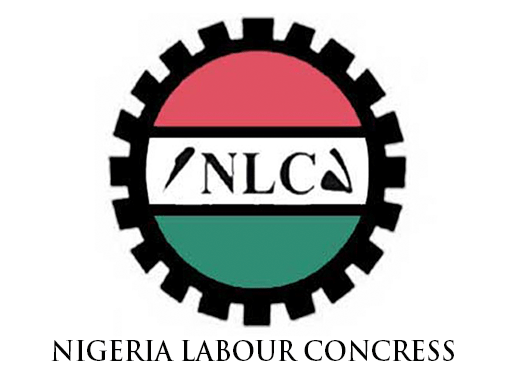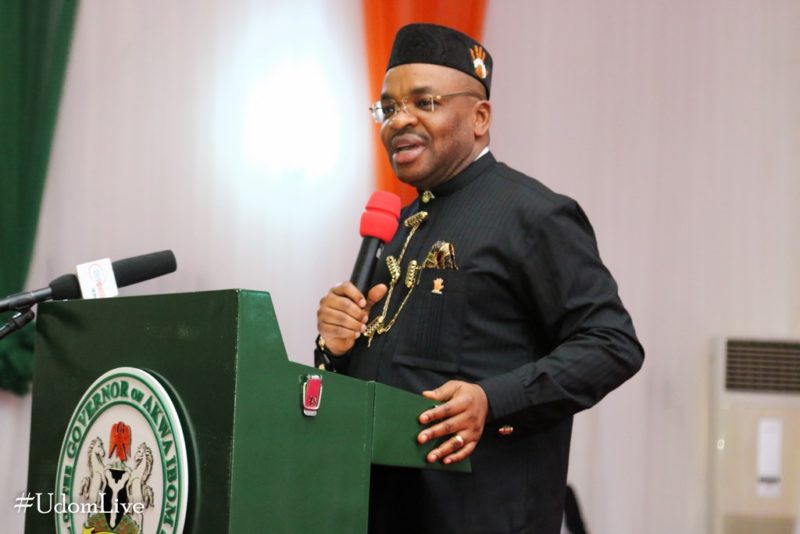The Nigeria Labour Congress, NLC, and its counterpart, the Civil Liberties Organisations, CLO, in Akwa Ibom State have identified gaps in the 2022 budget presented to the state House of Assembly by the Governor, Mr. Udom Emmanuel.
The unions made the observations during a public hearing of the 2022 Appropriation Bill at the State House of Assembly, Uyo, the state capital
The NLC chairperson, Sunny James, in his submission urged the House of Assembly to interrogate the entry of N3.58 billion as personnel costs for the budget office in 2022 noting that the value is not reflective of the staff strength of the said MDA.
NLC also accused the state government of not showing transparency in the management of public funds and thus challenged the House to probe the N30.7 billion COVD-19 responsive expenditure undertaken this year against the provision of public procurement.
It equally expressed worry over Akwa Ibom being the most indebted state in the country on a per capita basis, stressing that such liabilities include the N28 billion debt owed retired primary school teachers as well as arrears of gratuities of the core civil service polling the total indebtedness to retirees at over N50 billion.
The NLC statement read in parts, “We urge the House of Assembly to interrogate the entry of N3.58 billion as personnel costs for the budget office in 2022. We have observed that this value is not reflective of the staff strength of the said MDA.
“Our flagship Ibom Airport Development, going by the summaries of 2022 proposals would not be able to operate at break-even level in 2022. The total revenue from the services of the airport is pegged at N437.356 million, which is swarmed by the anticipated personnel costs for the same period of N670.892 million and overheads of N6220 million.
“An analysis of the major investment agencies and public corporations of the state government, namely, Akwa Ibom State Investment Corporation, Akwa Ibom State Property and Investment Company (APICO), etc reveals the same trend for 2022. While APICO will generate N30 million in revenue for 2022, its personnel and overheads for the same period are N349 million.
“The non-income generating worship centre will in 2022 receive N5 billion. This is in addition to the N6.7 billion appropriated for the same project in 2021 and N5 billion expended on the same project in 2020 fiscal years, thus bringing total expenditure on the project to N16.75 billion over the period 2020-2022.”
Also, the state Chairman of CLO in his submission urged the Assembly to rejig the Appropriation Bill 2022 before its passage so that allocations to nebulous and non-critical Items would be revisited and slashed.
CLO noted that the allocations for Capital Expenditure to the critical sectors, such as Health, Education, Agriculture, and Water should be enhanced adding that the huge allocations of capital votes to Government House, Office of the Accountant General, and Office of the Secretary to the State Government among others, should be revisited and slashed.
CLO’s statement in parts, “CLO is of the view that allocations for Capital Expenditure are in favour of non-critical sectors. CLO notes that the various offices within the Government House are allocated huge capital votes far in excess of the allocations for capital votes to the critical sectors, such as; “Health,” “Education,” “Agriculture,” and “Water” For instance, with N9,524,000,000.00 to “Ministry of Health” (Item No.111); N50,000,000.00 to “State Agency for the Control of AIDS (SACA)” as, (Item No.142) and N441,000,000.00 to the “Hospitals Management Board,” (Item No.87), the Health Sector is allocated N10,015,000,000.00 in capital votes which is not sufficient to address the many challenges in the Health sector.
“Again, with N7,193,705,370.00 to “Ministry of Education”, (Item No.108); N41,500,000.00 to the “State Secondary Education Board,” (Item No.145); N203,000,000.00 to “State Technical Schools Board”, (Item No.146) and N213,700,000.00 to “State Universal Basic Education Board,” (Item No.147), Education sector is allocated N7,651,905,370.00 which is less than 10% of the capital votes, and less than 10% of the total Budget and far less than the 26% UNESCO minimum benchmark for Education. For a State that is yearning for accelerated development, this
lopsidedness in the allocation of capital votes is unhealthy.
” CLO observes that the “State Scholarship Board”, (Item No.144, Schedule 2) has no capital vote. CLO urges that the Board should be provided with capital votes, in order to offer scholarship programmes to deserving students of the State origin, as a way of rewarding excellence and hard work among the youths.
“CLO further observes that there is no budgetary provision for Ibom Air in the Appropriation Bill 2022. This raises questions on the issue of ownership of Ibom Air.
“CLO is appalled that there is no capital provision for our tertiary Education and Health Institution. This has been the norm in previous budgets of the Akwa Ibom State Government. Capital projects in our critical institutions should go beyond perimeter fencing, re-painting and provision of wooden desks to building and equipping of our laboratories.”
However, the speaker of the State House of Assembly, Mr Aniekan Bassey, who was represented by his deputy, Mrs Felicia Bassey, said it was generally agreed both at the committee and at plenary that the time has come for this year’s appropriation bill content to command attention hence the need for it to be thrown open for more deliberations and perspectives.
“It is for this reason that we call for decorum and mutual understanding amongst participants or those who shall have the opportunity to make contributions. You can be assured that careful note shall be taken of all your contributions, and where it is applicable, they shall form part of the final draft of the bill before it might be deemed suitable to be passed into law,” he said.
The speaker expressed gratitude to Gov Udom Emmanuel and assured him of the House continued solidarity and partnership with his administration for the betterment of Akwa Ibom people.




